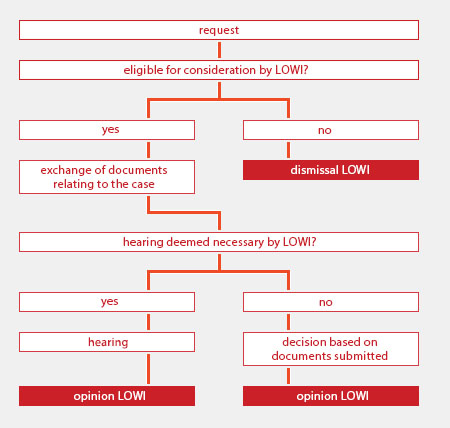Netherlands Board on Research Integrity (LOWI)
Founding year
2003
History
The Netherlands Board on Research Integrity (hereinafter referred to as ‘the LOWI’) is established in 2003 by the Board of the Royal Netherlands
Academy of Arts and Sciences (KNAW), and with the consent of the Board of the Dutch Research Council (NWO) and the Presidium of the Universities of the Netherlands (UNL). It has 21 affiliated institutions including the KNAW and NWO and their institutes and the UNL with 14 affiliated Dutch research universities, including the university medical centers (UMCs).
ENRIO member since
Structure
The structure of the LOWI is a foundation and not part of any ministry. Affiliation is voluntary.
Main Tasks
The LOWI is an independent advisory body that issues opinions to the Boards of its affiliated institutions regarding possible violations of principles of research integrity. These opinions are issued without the intervention of the institutions or their Boards.
 Investigation
Investigation
- The Board of an affiliated institution first decides if a complaint regarding a possible violation of the principles of research integrity is justified.
- If an interested party disagrees with the Board’s (provisional) decision, they can submit a petition regarding that decision to the Official Secretary of the LOWI. A petition must be submitted to the LOWI within six weeks of the date of the Board’s (provisional) decision; in default of which the LOWI will not consider the petition. The LOWI shall also decline to consider a petition if it relates to a civil and/or administrative and/or criminal law matter or proceedings. Other grounds not to consider a petition are if a reasonably amount of time (a period of ten years) has passed since the occurrence of the alleged violation of principles of research integrity, and when the LOWI already has issued an opinion on the petition.
- The LOWI then determines whether the petition is eligible for consideration by the LOWI. Only petitions regarding a Board’s (provisional) decision are considered. These also include a Board’s written refusal to take a decision on a complaint that has been submitted regarding an alleged violation of the principles of research integrity.
- If the complaint is eligible for consideration the LOWI shall proceed to perform a procedural and substantive review of the Board’s (provisional) decision. The Board’s (provisional) decision is reviewed to determine whether – depending on the complaint – was taken with due care, both procedurally and/or substantively. When the Board’s (provisional) decision consists of a refusal to hear a claim because of the limitation period has expired, the LOWI will determine if – based on the institutions complaints regulations – the refusal is well- founded.
- The LOWI then issues an opinion to the Board of an affiliated institution regarding possible violations of principles of research integrity, in which respect the LOWI’s advice may include a recommendation regarding the necessity of a particular sanction if the opinion confirms that the principles of research integrity have been violated.
- The complainant receives a copy of the opinion from the LOWI submitted to the Board, as will other interested parties.
- During the review procedure all parties involved are subject to a duty of confidentiality with regard to all information submitted by interested parties about the case.
- After the Board has issued its final decision the LOWI requests interested parties to exercise restraint as not to harm the scientific reputation of the defendant; particularly in case of an unfounded complaint.
- The opinions of the LOWI are published anonymously on the LOWI-website. Short summaries of the opinions are available in English, as is information regarding the regulations of the LOWI-procedure.

 Training
Training
The Chair of the LOWI is frequently asked to organize workshops and presentations on research integrity for students and PhD students.
 Promoting Research Integrity
Promoting Research Integrity
The Chair of the LOWI and some its members are involved in promoting research integrity by attending panels and participating in discussions at universities regarding this issue.
Contact
Judith Zweistra
LL.M Deputy Official Secretary
The Netherlands Board on Research Integrity (LOWI)
P.O. Box 19121
1000 GC Amsterdam - The Netherlands
